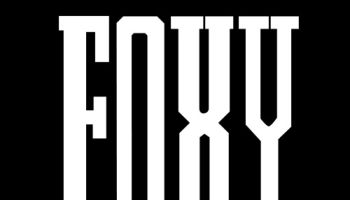A California school district has added a new book to the controversial list of literature that is considered unfit for young eyes. It’s the dictionary.
The Golden State’s Menifee Union School District has yanked all copies of Merriam-Webster’s Collegiate Dictionary from its shelves and is investigating the classic American text for containing “age-inappropriate” words.
The trouble started when an inquisitive student got lost somewhere between “oralism” and “orang” and found a rather recent entry to the lexicon: “oral sex,” a phrase that has been in common parlance since 1973 but still makes many parents fairly hot under the collar.
Menifee administrators chose to leave their lexicons languishing after a parent at Oak Meadows Elementary School complained about a child finding the definition, which reads, rather clinically: “oral stimulation of the genitals.”
Now, more than 200 years after Noah Webster slashed the Us from British colours and honours in his very first American dictionary, this Riverside County school district 60 miles southeast of Los Angeles is looking to slash a little more.
Menifee, which is composed of 9,000 students between kindergarten and 8th grade, is forming a committee of principals, teachers and parents to pore over the book and determine whether it’s fit for young eyes. It could take a while: the unabridged edition available online contains over 470,000 entries.
As they do their work, free speech advocates are getting worked up over what they call needless and harmful censorship.
“If a public school were to remove every book because it contains one word deemed objectionable to some parent, then there would be no books at all in our public libraries,” said Peter Scheer, executive director of the California First Amendment Coalition, in an interview with the California Press-Enterprise.
“I think common sense seems to be lacking in this school.”
What’s more, the removal might deny bored children the centuries-old pastime of leafing through those tissue-thin pages for a brief glimpse of some otherwise unprintable slurs, the forbidden fruit of the reference section.
As anyone who went through sixth grade and spent a few minutes giggling in front of a dictionary probably knows, a—— is in there, and so is b—-, and c—, and even d—. Merriam-Webster takes a breather at the letter e but picks up steam again with f— and never looks back.
But some families are supporting the schools and say it’s up to the district to do everything it can to shield children from explicit language.
Barbara Lassiter, whose 10-year-old granddaughter is a student at Oak Meadows, doesn’t think officials need to read every entry in the book, but should field all complaints from parents and consider whether the dictionary is indeed appropriate.
“They’re doing exactly the right thing,” she told the Press-Enterprise.
The school might manage to trade its collegiate editions for a set targeted for younger audiences. Merriam-Webster also publishes a children’s dictionary, which could help settle some nerves on both sides of the fight in Menifee.
In the meantime, the school district still has copies of dictionaries that aren’t considered offensive, but remains in a bind over what to do with their Merriam-Websters, which are currently collecting dust — more than usual — out of reach of prying fingers.
One option they’re not likely to consider is Merriam-Webster’s interactive Visual Dictionary, which opens up for children a “visual world of information,” and who knows how many more cans of worms?















